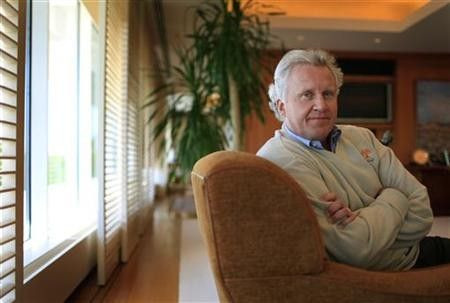25 Top CEOs Earn More Than Their Firms Pay in Taxes

Twenty-five of the nation's best paid chief executive officers earned more in salary and other compensation in 2010 than their companies' entire federal income tax expenses, according to a report by the Institute for Policy Studies.
The report, titled Executive Excess 2011: The Massive CEO Rewards For Tax Dodging, examined 100 publicly traded U.S. corporations with the highest-paid CEOs. It found that companies whose CEOs' compensation exceeded its reported tax expense in 2010 had average global profits of $1.9 billion.
Big-name companies such as General Electric Co., Verizon Communications Inc., Boeing Co. and Dow Chemical Co. were included in the list.
The group said its findings illustrate the need for an overhaul of the U.S. tax code. In particular, it shows how some of the country's most profitable organizations are spending hundreds of millions of dollars on lobbying for corporate tax loopholes while also shifting profits to offshore locations to avoid the sting of the Internal Revenue Service.
Instead of sharing responsibility for addressing our nation's fiscal challenges, corporations are rewarding CEOs for aggressive tax avoidance, said Chuck Collins, a senior scholar at IPS who co-authored the report.
General Electric, led by CEO Jeff Immelt, was the most lucrative of the 25 firms. The company, which ranked 14th among U.S. firms in global profitability, received a $3.3 billion tax refund, despite reporting $5.1 billion in U.S. pre-tax income.
Meanwhile, Stanley Black & Decker CEO John Lundgren was the highest paid executive on the list, raking in $32.6 million, while the company got a $75 million tax refund.
Lundgren received a 253 percent pay increase even though the March 2010 merger between Stanley Works and Black & Decker is expected to result in 4,000 layoffs. Moreover, 61 percent of the company's shareholders reportedly opposed company executive pay practices at the organization's most recent annual meeting.
To top it off, the report found that last year, S&P 500 CEO's collected $10.8 million in average compensation, a 27.8 percent increase from 2009. However, the gap between CEO and the average U.S. worker pay continued to rise, reaching 325-to-1 last year compared to 263-to-1 in 2009.
These corporations avoid hefty income tax payments through a variety of tax-avoidance techniques. While the report said some of the tax breaks can have redeeming social value - such as incentives that encourage green energy transitions - they only play a minor role in many of the companies' massive tax refunds.
One of the most popular tax-dodging strategies is the offshoring of corporate activity to tax havens in low or no-tax jurisdictions. Eighteen of the 25 firms highlighted in the study had 556 tax haven subsidiaries in the last year, which reportedly costs the federal treasury about $100 billion a year.
These havens are speeding the transfer of wealth out of local communities and the global south into the bank accounts of the planet's wealthiest and most powerful, the report stated.
The prevalence of such accounting games has severely lowered the corporate share of federal revenue. In 1945, U.S. corporate income taxes added up to 35 percent of all federal government revenue, compared to 9 percent in 2011. Plus, the effective income tax rates for corporations have also plummeted. In 1952, it was 52.8 percent while in 2010 in was just 10.5 percent.
Despite the extent and publicity of the federal government's financial woes, the report concluded there is no sign that the corporate tax system will truly be reformed anytime soon. However, a previous IPS analysis found that reversing tax giveaways on corporations and the nation's wealthiest demographic could raise $4 trillion within the next decade and avert possible government shutdowns.
© Copyright IBTimes 2024. All rights reserved.





















